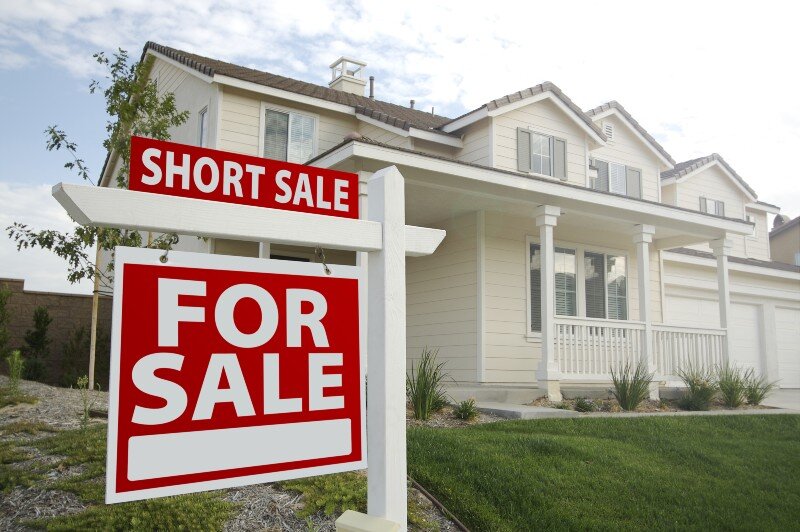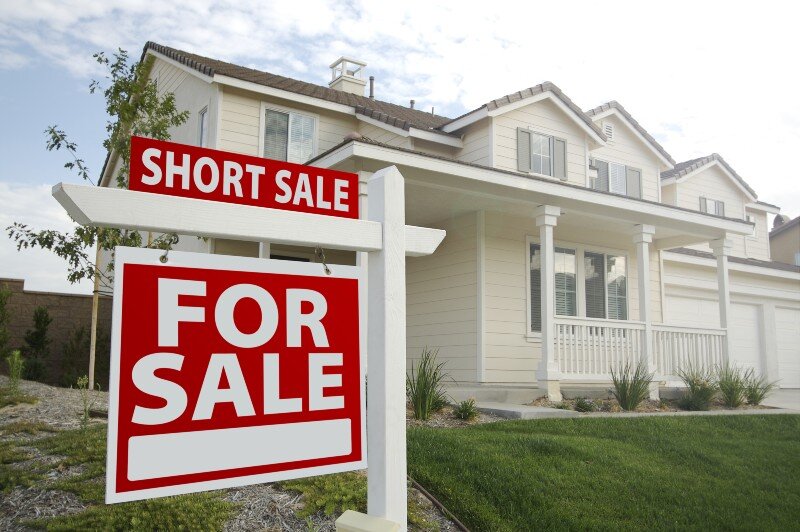
When you find yourself in over your head financially, you might hear the terms short sale or foreclosure being thrown around.
Typically, a homeowner does not want to experience either, but sometimes it is inevitable. Selling your house at a loss or losing your home to foreclosure are unpleasant experiences, but they may allow you to make a fresh start.
We will look at a short sale vs. foreclosure and explain a few details that homeowners should know. First-time homebuyers sometimes take on more than they can afford and find themselves looking for a way out of their financial predicament.
Short Sale vs. Foreclosure
Homeowners who have missed a few mortgage payments may consider a short sale. A short sale is when an offer on a property is less than what is owed on the mortgage loan. People consider short sales when foreclosure is a real possibility. You can check out cash home buyers in Pennsylvania.
The mortgage lender must agree to the short sale. All proceeds from the sale price go directly to the lender to pay all liens and outstanding payments. They will decide if they want to forgive the remaining balance or pursue a deficiency judgment against the borrower.
The homeowner must submit a proposal for the short sale process. They will include the offer from the prospective buyer and a hardship letter explaining their financial difficulty and inability to continue making regular mortgage payments. Once they have lender approval, they can proceed with the short sale transaction.
A homeowner chooses a short sale voluntarily as a way out of financial hardship. Generally, they will take a significant loss on their home because the purchase price will be much lower than the actual market value.
A buyer will face foreclosure if they have missed several mortgage payments and the lender begins foreclosing. Once you receive a notice of default, you should contact your lender and determine if you qualify for a renegotiation of your mortgage terms. You can refinance and lower your mortgage payments.
Pre-foreclosure allows homeowners time to consult with a real estate agent and research home values. You may have the time for a traditional sale, but consider a short sale if you cannot sell before the foreclosure auction.
You may also consider a deed instead of foreclosure, which means you hand over the keys to the house to the lender. The property’s title transfers to the lender and the borrower are no longer responsible for the mortgage balance.
The lender typically makes an opening credit bid at the foreclosure sale. The foreclosed property becomes real estate owned when they are the highest or only bidder. The bank will sell their REOs by using a realtor or listing the foreclosure properties online.

The Differences Between a Short Sale and Foreclosure
The major difference between a short sale and foreclosure is that a short sale is voluntary. A homeowner chooses to sell their house below market value and suffers a financial loss. You may want a quick sale so you can sell a house fast in Jenkintown.
Foreclosure happens when the bank or mortgage lender seizes your property and sells it to pay your lienholders. You can do nothing once the property sale is complete at the foreclosure auction, but you have several options to avoid foreclosure.
A short sale may not damage your credit score like a foreclosure. If you continue to make your mortgage payments until the sale is complete, you will have a better chance of repairing your credit quickly.
Considering a Short Sale
You must first convince your lender that a short-sale home is better than a foreclosed home. You will have to show that you are suffering financial hardship and cannot make your mortgage payments.
You will have to study the housing market and determine a fair price for your home. You don’t want to lose too much money. There are real estate companies that specialize in buying homes that are in foreclosure. They will provide a quote, and you can include it in your proposal to the bank.
You must disclose that you have a short-sale property. It would be best if you were upfront with potential buyers because they need to know they are paying less than the mortgage balance. The buyers will need to negotiate with the lender and the seller.
Undergoing Foreclosure
People who are living through the foreclosure process are sure to feel anxious. It can be a complicated process, but it may give you a fresh start.
There is a specific process that mortgage lenders must follow for foreclosing on a property. Homeowners have between 6 – 10 months.
The pre-foreclosure stage is when the homeowner begins to miss payments. The lender must get in contact and offer loss mitigation solutions to avoid foreclosure.
Homeowners will have several months to work out a plan that allows them to keep their house. Lenders will work with borrowers so they can avoid the foreclosure process.
The lender will send a notice of default after four months of missed payments. This notice gives the homeowner 30 days to pay the outstanding debt. Once 30 days have passed, the lender can initiate foreclosure proceedings.
Lenders can initiate a judicial or nonjudicial foreclosure, depending on the state. A judicial foreclosure requires court approval for each stage of the foreclosure.
A nonjudicial foreclosure, much more common, requires filing the appropriate paperwork with the court, and the process can begin. Nonjudicial foreclosure is much quicker than judicial foreclosure.
They will have to give notice of the property sale. They must record the notice of the sale with the county and a copy sent to the homeowner. The lender must advertise the sale in a newspaper for several consecutive weeks. Borrowers still have the option of selling a house in foreclosure before the auction.
The highest bidder wins the property at a foreclosure auction, and the lender will start bidding based on the property’s appraised value. If they are the highest bidder, the property becomes real-estate owned, and the lender is responsible for selling it.
Once the property title is transferred to the new owner, they will send an eviction notice to the borrowers, who must leave the property immediately.
Can Lenders Refuse Short Sales?
Yes, a lender can refuse a short sale. A lender will not allow a short sale if the homeowner is not late on their mortgage payments. Some homeowners may feel that a short sale may be the way to avoid getting deeper into debt. Lenders will not agree to the sale of a property at a loss if the borrower is still making their payments.
A lender can refuse if they believe they can make more money from foreclosure. When the proposed sale amount is much lower than the appraised value of the home or the amount the borrower owes, they can refuse if they believe they can recoup more money by selling the property at auction.
A mortgage lender has the option to refuse when there is a cosigner that is responsible for the payments. When a cosigner is involved, the lender will pursue the outstanding mortgage balance from them.
Lenders want to avoid dealing with bank-owned properties, but they will if it means recouping the mortgage balance.
Can Short Sales Get You Out of Foreclosure?
Yes, a short sale can get a homeowner out of foreclosure, and they can rid themselves of a property that is creating a mounting debt. The short sale might not pay off the mortgage balance, but it will help with avoiding foreclosure.
Losing your home may seem overwhelming, but homeowners should consider limiting the negative consequences to their credit score. You can sell your home and work on repairing your credit.
You can deal with your financial challenges and consider a more affordable home purchase. In the long run, you may be happier in a house that you can afford to maintain.
Do Short Sales and Foreclosures Affect Your Credit Score?
A short sale or a foreclosure will affect your credit score. When homeowners sign their mortgage papers, they agree to repay the loan, and the inability to make that repayment will harm your credit report.
There are typically several missed mortgage payments before a short sale or foreclosure happens, so these items will also work against you. The blemish on your credit report will not last forever, and you can work to rebuild your credit.
You may qualify for an FHA loan, a government-backed loan requiring less money for a down payment while you work on your credit.
These loans can be more expensive than your traditional bank mortgages as they have higher upfront and annual fees. You may be able to get a home loan even if your credit score is not stellar.
It may take some time to repair your credit, but you will eventually be able to purchase a new home.
Conclusion
The last thing people want is to lose their homes. If you have no choice, going with a short sale is best to avoid foreclosure.
Homeowners should do everything possible to minimize the negative impact on their credit scores. The quicker they can get back on their feet, the faster they can buy a new home.
If you’re trying to avoid foreclosure, contact us for immediate help! We buy houses Philadelphia residents want to make a short sale to avoid foreclosure.


 Call Us!
Call Us!